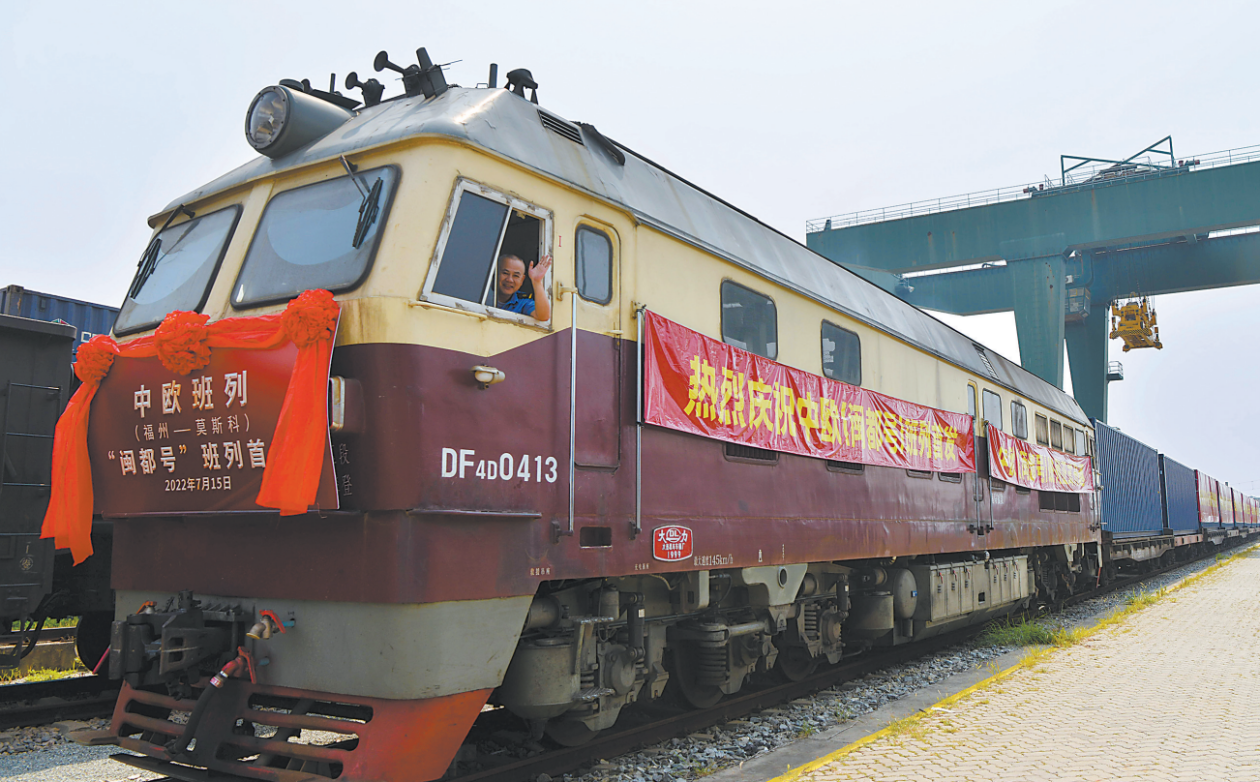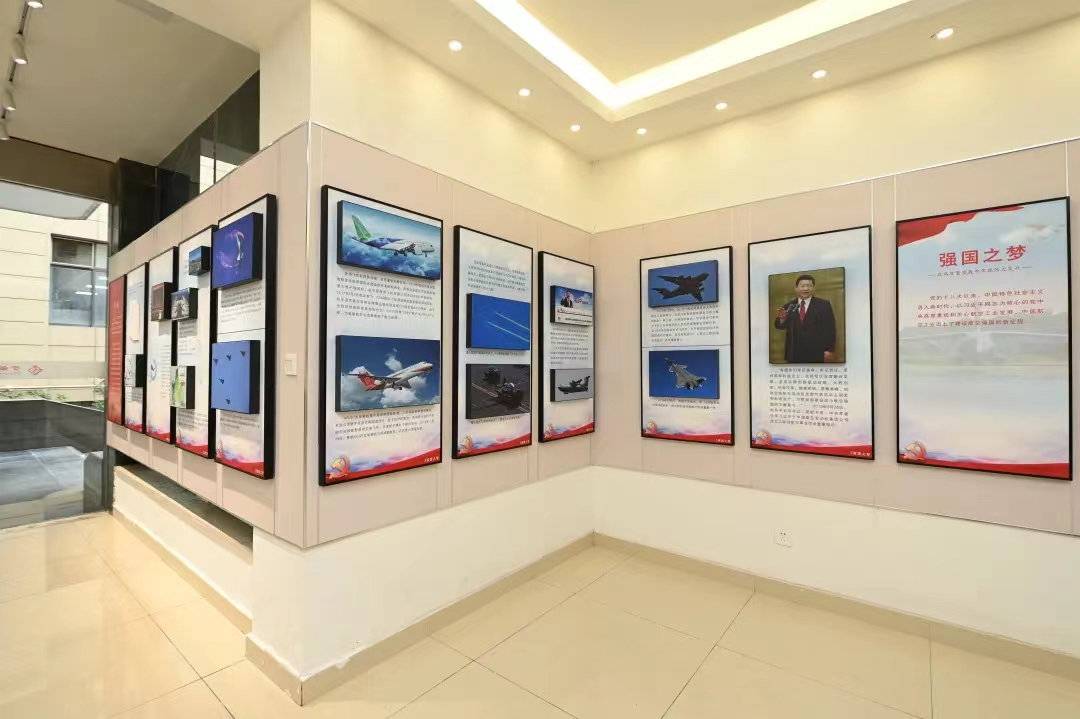Withstand the pressure of "over -expected" and stepped out of the "V -shaped" situation, China's economy stabilized and rebuilt the toughness
Author:Global Times Time:2022.07.16
[Global Times Comprehensive Report] On the 15th, the National Bureau of Statistics announced the "transcript" in the first half of 2022: In the first half of the year, GDP increased by 2.5%year -on -year, of which the second quarter increased by 0.4%year -on -year. Although this number has declined significantly compared with the "dazzling recovery" of the Chinese economy last year, public opinion generally believes that this is mainly because this year, the international environment has become more complicated and severe. The expected sudden factors have brought a serious impact. Some Western media have seen the decline of the Chinese economy, claiming that "the Chinese economy can no longer become a global growth engine." However, a number of Chinese economists said in an interview with the Global Times on the 15th that a number of economic towns, including the Yangtze River Delta and the Pearl River Delta, suffered the impact of the epidemic in April and May. The impact on outbreaks is even more large, but in the second quarter, China's economy was stressed and it was not easy to achieve positive growth. Although the current domestic and foreign environments are more complicated and severe, the added value of China's high -tech manufacturing industry will increase by 9.6%year -on -year in the first half of the year. Especially solar batteries and new energy vehicles have increased by 31.8%and 111.2%year -on -year, indicating that the Chinese economy and "Made in China" The core competitiveness not only did not weaken, but also further enhanced in the global crisis. Russian Satellite News Agency said on the 14th that despite the tension between China and the United States and the West, Western capital's investment in China is increasing. Among them, the most intense investment appeared in the high -tech field. In the first half of the year, the actual use of China's high -tech industries, high -tech manufacturing and high -tech service industries increased by 42.7%, 32.9%, and 45.4%, respectively. CEO of the chemical giant BASF, CEO of Brude Mulles, recently told the German Business Daily: "China is a huge market ... we can't do without it."

On the 15th, the China -Europe Freight Candidate from Fuzhou Jiangyin Port Station was expected to arrive in Russia Moscow Bestrerast Station 16 days later. This is the first China -Europe trains opened by Fuzhou.
Holding the pressure to achieve positive growth
On the morning of the 15th, the National Council of the State Council held a press conference. Fu Linghui, a spokesman for the National Bureau of Statistics and Director of the Department of Statistics of the National Economic Comprehensive Statistics, introduced the operation of the national economy in the first half of the year. Preliminary accounting, the GDP in the first half of the year was 56264.2 billion yuan, a year -on -year increase of 2.5%. Among them, the GDP in the second quarter was 29246.4 billion yuan, a year -on -year increase of 0.4%.
"The second quarter of China's economic growth contracted sharply, and the growth of the first half of the year also slowed down significantly." Reuters said that this highlights the extensive epidemic control measures in many regions of China in April and May, which seriously impacts industrial production and consumers. Expenditure has caused huge losses to economic activities.
The US CNN said that China's economic growth in the second quarter was the slowest quarterly growth since the first quarter of 2020. In 2020, the Chinese economy fell sharply due to the new crown pneumonia epidemic outbreak of Wuhan and other places. In the first quarter of 2020, GDP contracted 6.8%. However, after China controlled the epidemic, the economy rebounded strongly in the subsequent second quarter, and GDP growth was negative to positive. China's GDP increased by 8.1%in 2021. It is reported that in March and April of this year, due to the spread of Omikon's mutant strains, dozens of cities in China have implemented strict control measures, including China's finance, shipping and industrial center Shanghai and Shenzhen. A large number of residents are restricted at home, stores and restaurants are closed, and the supply chain of industrial production in the country has also been disturbed.
"The Chinese economy began to rebound in June." The Dow Jones News Agency said that as most places reopened the economy in early June, the Chinese manufacturing and service industry showed signs of improvement. China's industrial output in June increased by 3.9%year -on -year, much higher than the increase of 0.7%in May. It is particularly noteworthy that the retail sales of the downturn increased by 3.1%year -on -year, reversing the decline of 6.7%in May.
The German "Business Daily" said that experts expect China's industrial production to continue to rebound. According to the data released by China Customs on the 13th, the exports increased strongly by 22%in June. Chinese factories are now processing backlog orders. However, many international institutions have recently predicted that many countries in the United States and Europe are in danger of recession, and the Chinese economy will inevitably face the "strong pressure" of the atrophy of the international market.
Yao Jingyuan, a specially invited researcher at the State Council ’s participating office and former General Economist of the National Bureau of Statistics, told the Global Times on the 15th that looking at the Chinese economic data, it must not only look at the level of a certain data, but also to see the trend. China has maintained a good growth in January to February this year. The economy has declined in March, and it has fallen rapidly in April. The marginal improvement in May has improved. The main indicators in June have stabilized and rebounded. The economic downturn from March and April was mainly affected by the epidemic. This epidemic mainly affected economic developed areas such as the Yangtze River Delta and the Pearl River Delta. The Yangtze River Delta accounted for 25%of the country's total economic volume and 10%of Guangdong Province. In addition, 80%of the nation's regions have a supply chain connection with Shanghai, resulting in disturbing the national industrial chain and supply chain. Therefore, in some ways, the impact of this epidemic on the economy is even greater than the impact of the outbreak in 2020.
Yao Jingyuan said that recently, the World Bank and the International Monetary Fund have frequently reduced the economic growth rate of the world and countries this year and next year. In this context, although China ’s growth in 2.5%and 0.4%in the second quarter was low, it was difficult to come, indicating that the Chinese economy has undergone the test of super -expected factors, and it also shows that China’ s economic toughness is strong. "Development and upgrading has not changed"
Some Western media took the opportunity to see the sound of decline in the Chinese economy. The Washington Post stated that last year, China's economic growth was ahead of other major economies in the process of recovering from the epidemic. But at present, the United States and Western countries are basically open, and China still adheres to the dynamic clearance policies. With the emergence of more mutant strains, this policy may increase the destruction of the economy. The New York Times said that China's economic prospects are not so optimistic. The report quoted Rogov, a professor of economics at Harvard University, saying: "China can no longer become a global growth engine, and long -term fundamentals indicate that China's growth in the next decade will slow down."
Chen Fengying, former director of the World Economic Research Institute of the China Institute of Modern International Relations, told the Global Times reporter that under the current situation of the global economic environment, the Chinese economy should pay more attention to maintaining stable growth in all aspects, especially agricultural stability and security. China increased by 4.5%in the first half of the year, and the total summer grain output in the country increased by 1%, avoiding the impact of the global food crisis. She said that in the face of more critical moment than 2020, economic security and stability are more important aspects.
Cao Heping, a professor at the School of Economics of Peking University, said that in fact, in recent years, China's economy has been encountered in various shocks or external suppression, but it is being transformed in a series of crisis. In the first half of the year, the added value of the high -tech manufacturing industry above the scale of China increased by 9.6%year -on -year, and investment in high -tech industries increased by 20.2%, especially solar cells and new energy vehicles increased by 31.8%and 111.2%, indicating that my country's development and upgrading trend has not changed. China The core competitiveness of economy and "Made in China" has continued to increase.
"We can't do without the Chinese market"
"Beijing is running against time", and Germany "Economic Weekly" said on the 15th that despite its weak economic growth in the first half of the year, China's economic management is accelerating. As of the end of June, a record of 3.41 trillion yuan of special bonds has been issued throughout China. This money will be used for infrastructure projects, especially "new infrastructure" investment, such as artificial intelligence, big data and 5G expansion. The Chinese government is transforming these high -tech investment into a growth engine.
"Global Capital still believes in China as in the past." Russian Satellite News Agency said on the 14th that although China's economic growth is sluggish this year, foreign institutional investors are increasing investment in Chinese artificial intelligence, smart cities and autonomous vehicles. Morgan Chase and Temasek are talking about expanding China's investment. Temasek said that it will increase investment in promising Chinese technology, focusing on semiconductors, big data, and artificial intelligence. These directions are also priorities for China's "Fourteenth Five -Year Plan". It is reported that although China's political relations with the United States and the United States have tension, Western capital's investment in China is increasing. In the first five months of this year, China's economic absorption foreign capital reached 87.77 billion US dollars, an increase of 22.6%. Among them, the most intense investment appeared in the high -tech field. From the source, South Korea, the United States, and Germany's actual investment in China increased by 52.8%, 27.1%, and 21.4%, respectively.
In fact, China's industrial upgrading and high -tech investment are returning. A few days ago, the German country of manufacturing Germany reported the first monthly foreign trade deficit in more than 20 years, and the May rebellion was 1 billion euros. Several other major manufacturing countries are basically deficit: the initial value of the US trade deficit in May in May; the Japanese deficit of May of May was 17.8 billion US dollars, which is the tenth consecutive month of deficit; The deficit was US $ 2.47 billion, and the trade deficit in the first half of the year reached 10.3 billion US dollars. The German "Spiegel" Weekly said on the 13th that the Chinese trade surplus in June soared to a record level of $ 97.9 billion, which greatly exceeded the expectations of experts.
According to the German Business Daily, in June, BMW Group invested 2 billion euros to build a new factory in Shenyang. This is the biggest investment of BMW in China so far. German chemical giant BASF CEO Bride Muller also told the "Business Daily" a few days ago: "China is a huge market. As the world's largest chemical company, we cannot do without it." He emphasized: "We support all Investment announced in China. "
[Global Times Special reporter in Germany and Canada Aoki Tao Short House Global Times reporter Li Xue Chen Kang Yang Chen Zhenxiang Liu Yupeng]
- END -
Want to know the history of China's aviation industry?Come to Chengdu's exhibition to find the answer

Cover reporter Liu QiufengHow can China's aviation industry from scratch? How does...
Hyun "Father", my father is a fire rescue staff!

In the eyes of childrenMy father's image may be tall and handsomeWords must be gen...